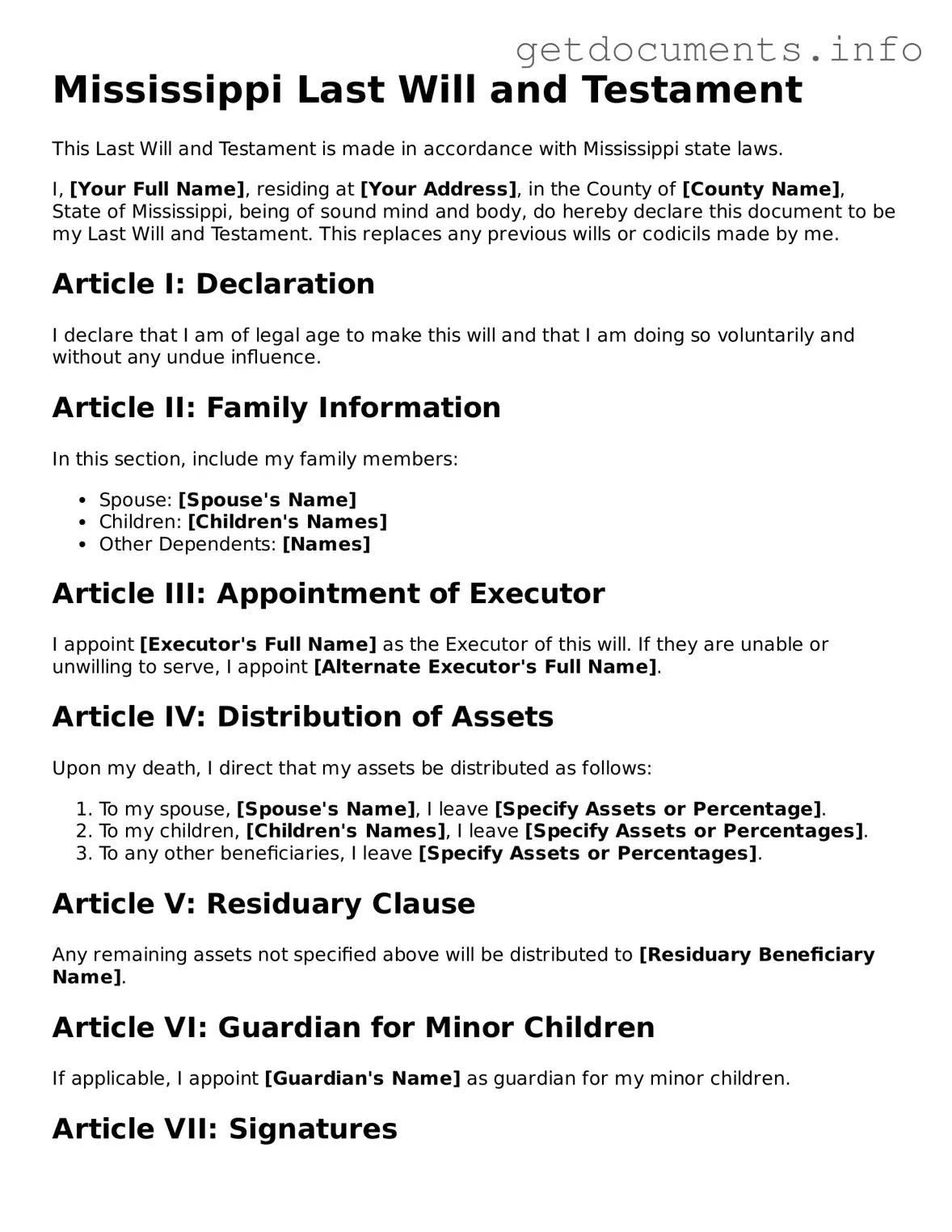Free Last Will and Testament Template for Mississippi
A Mississippi Last Will and Testament form is a legal document that allows individuals to outline their wishes regarding the distribution of their assets after their passing. This form ensures that your intentions are honored and can provide peace of mind for you and your loved ones. To begin the process of securing your legacy, please consider filling out the form by clicking the button below.
Access Last Will and Testament Editor

Free Last Will and Testament Template for Mississippi
Access Last Will and Testament Editor
Got places to be? Complete the form fast
Fill out Last Will and Testament online and avoid printing or scanning.
Access Last Will and Testament Editor
or
⇩ PDF File
